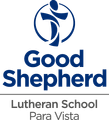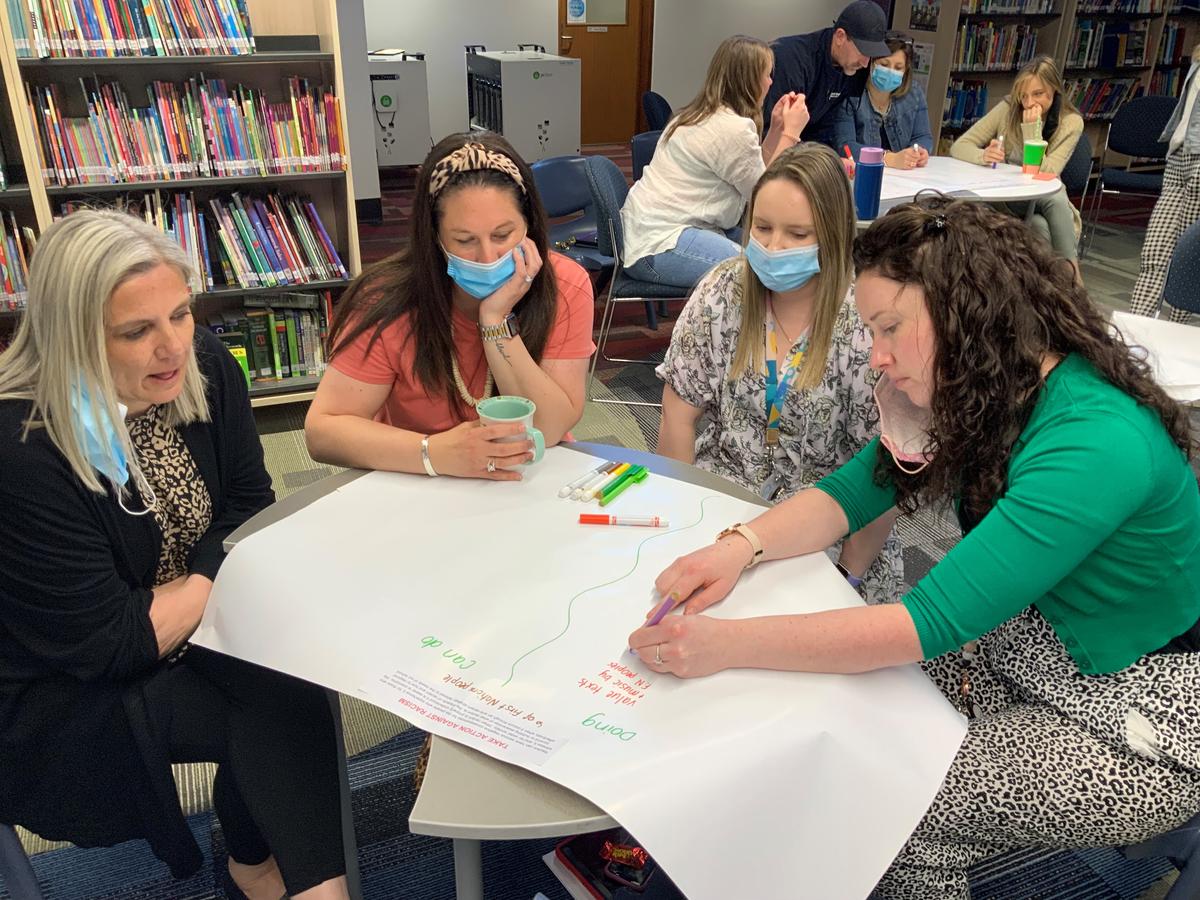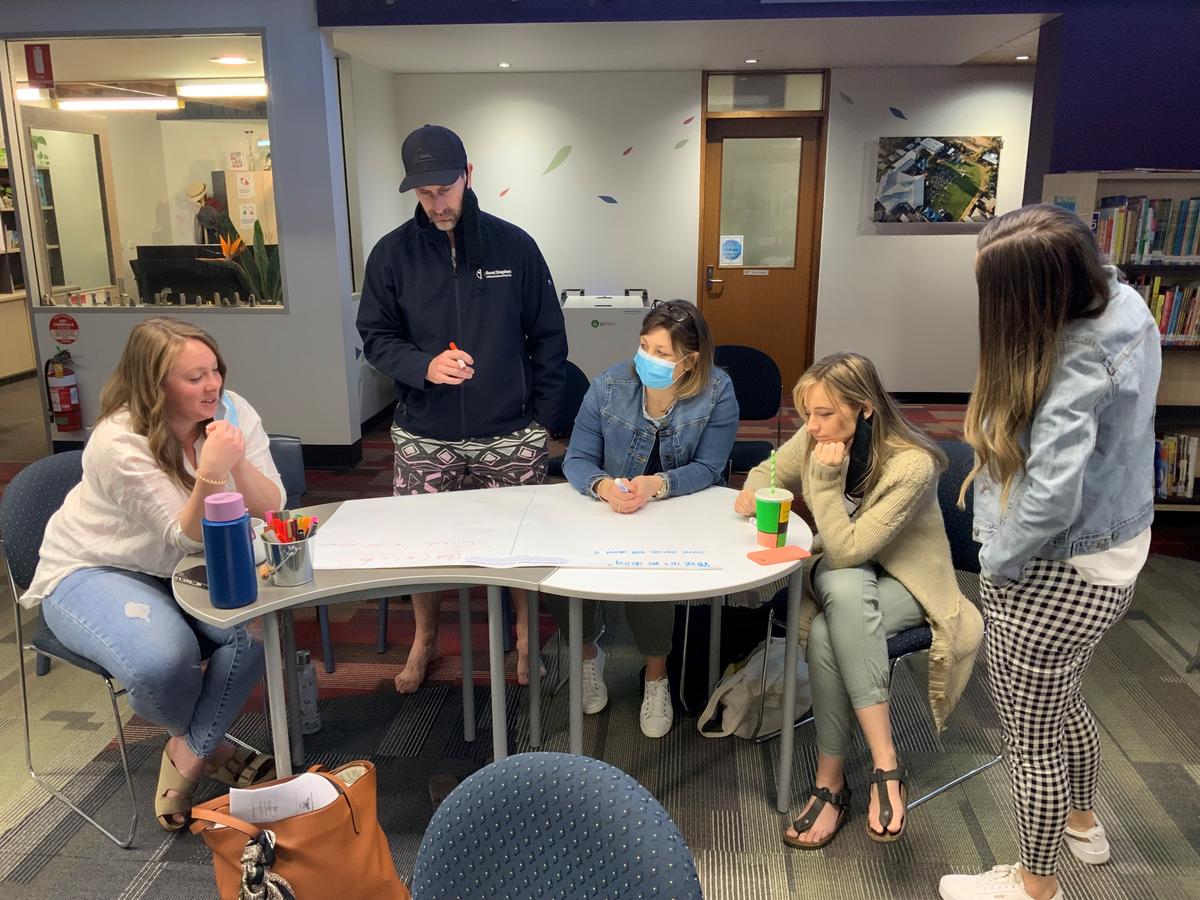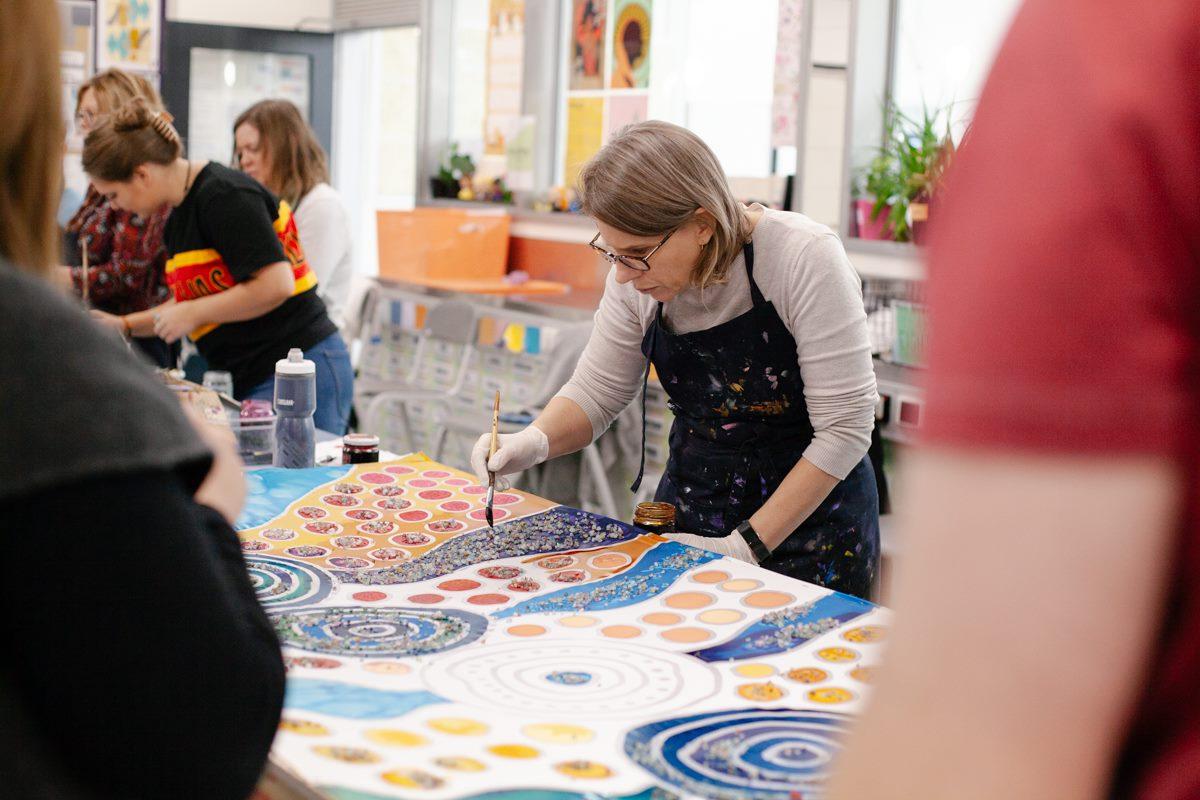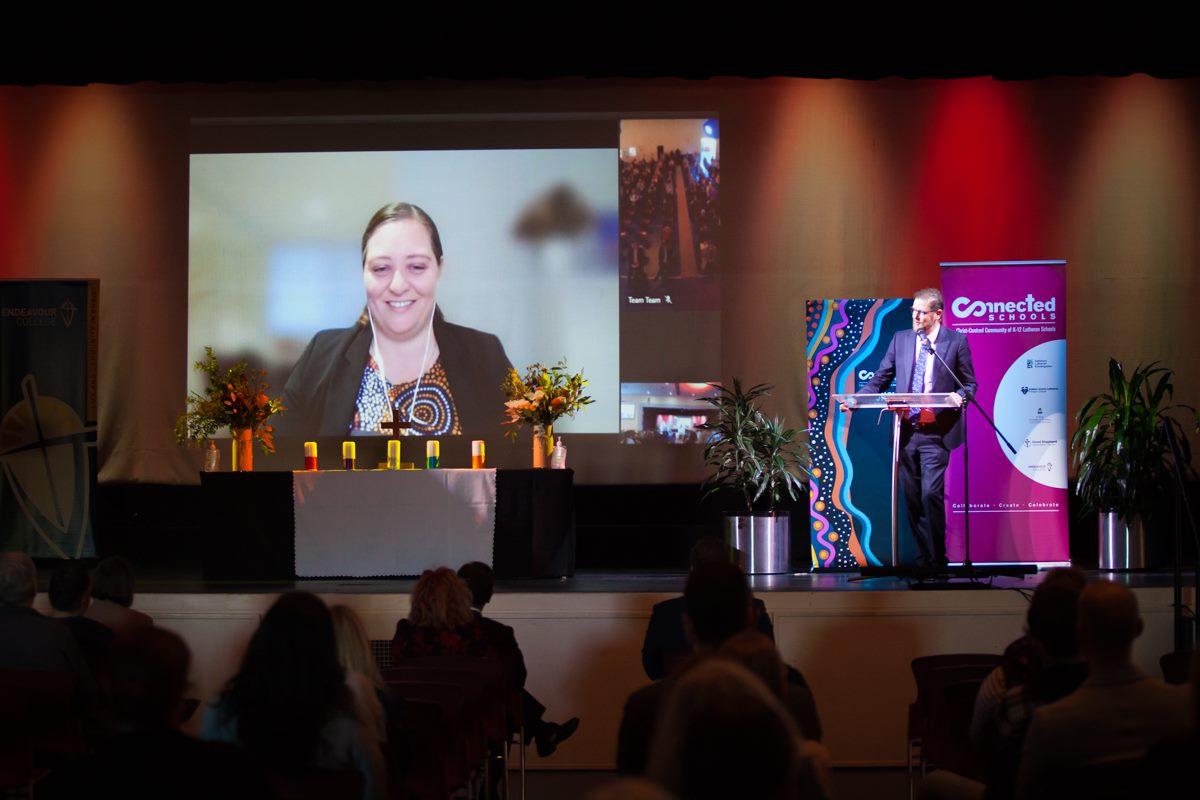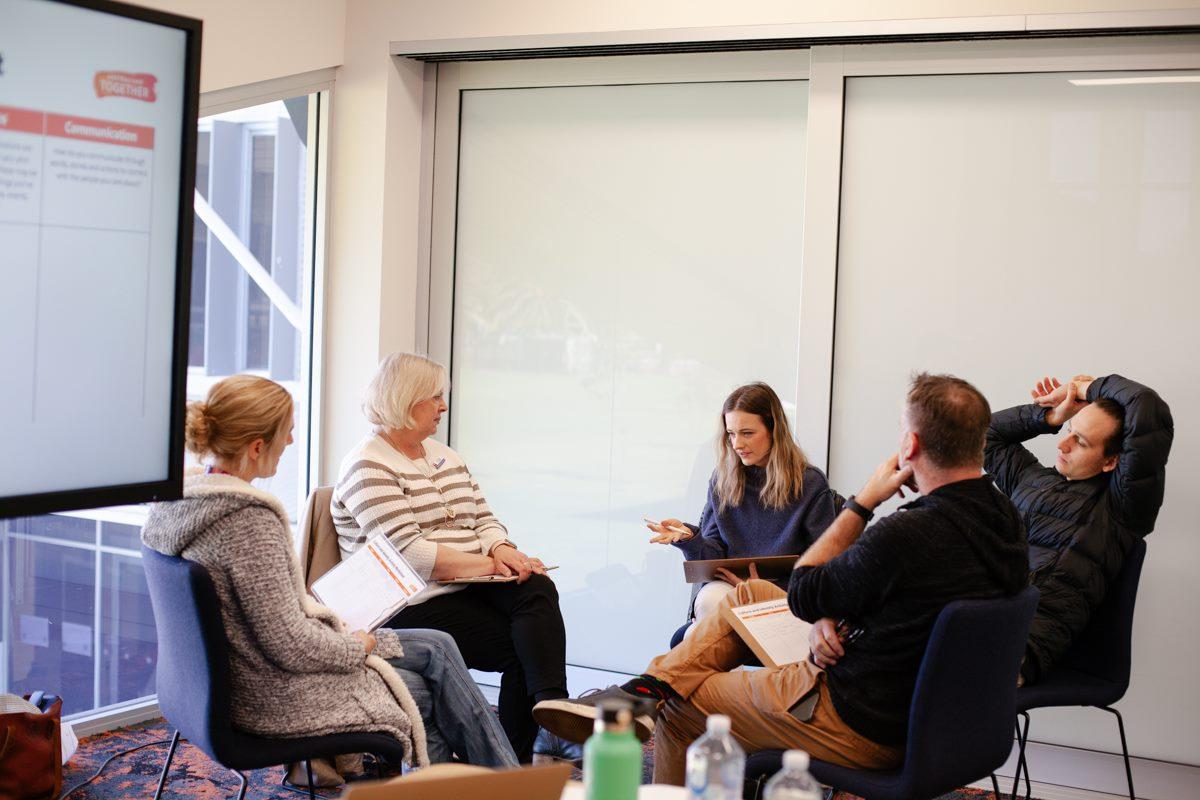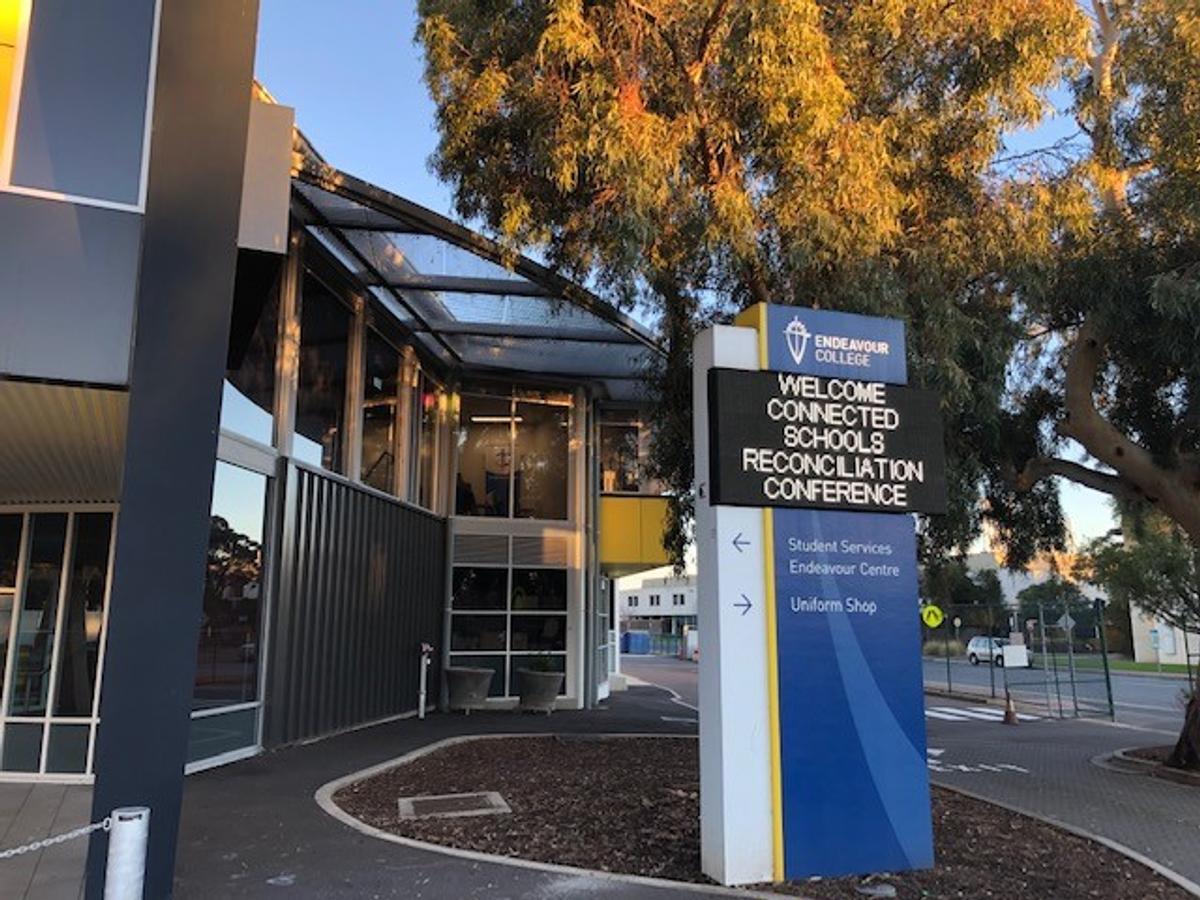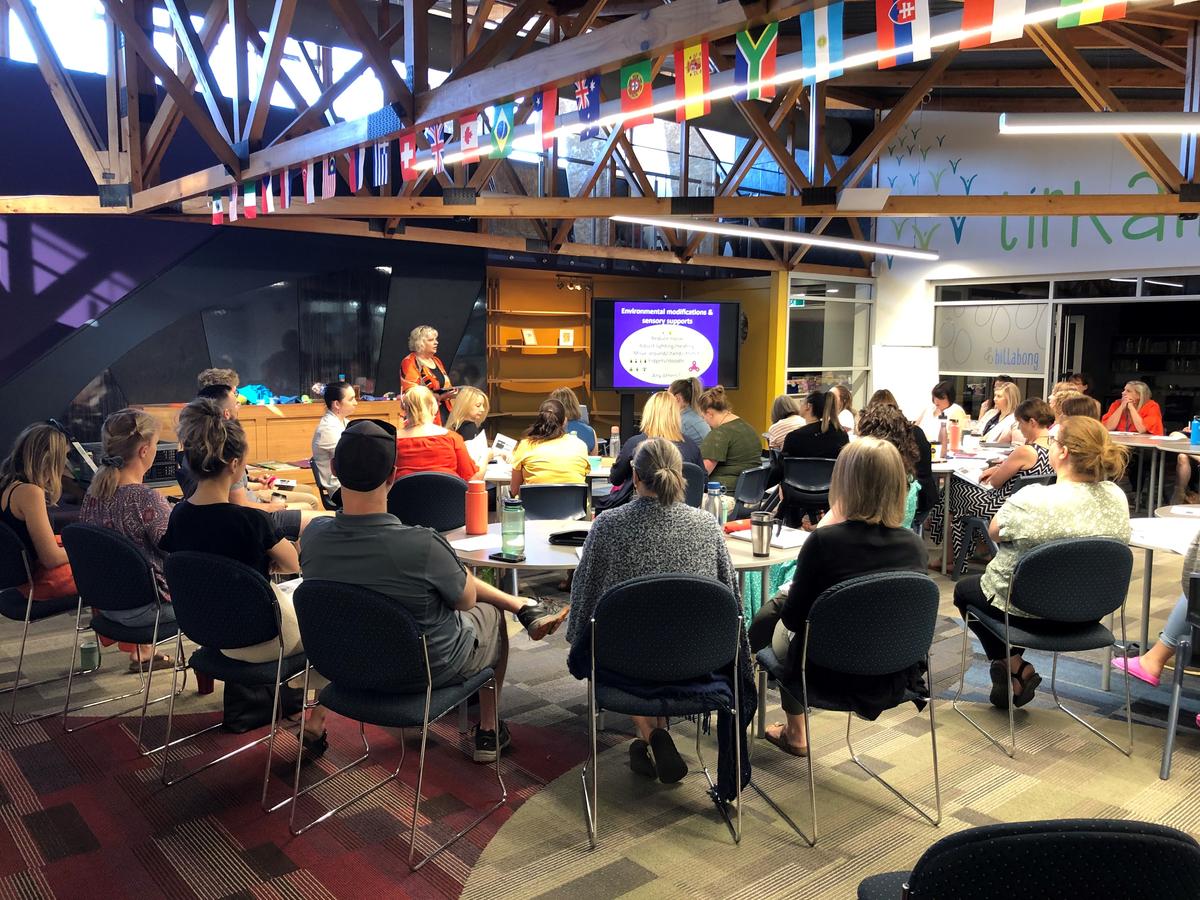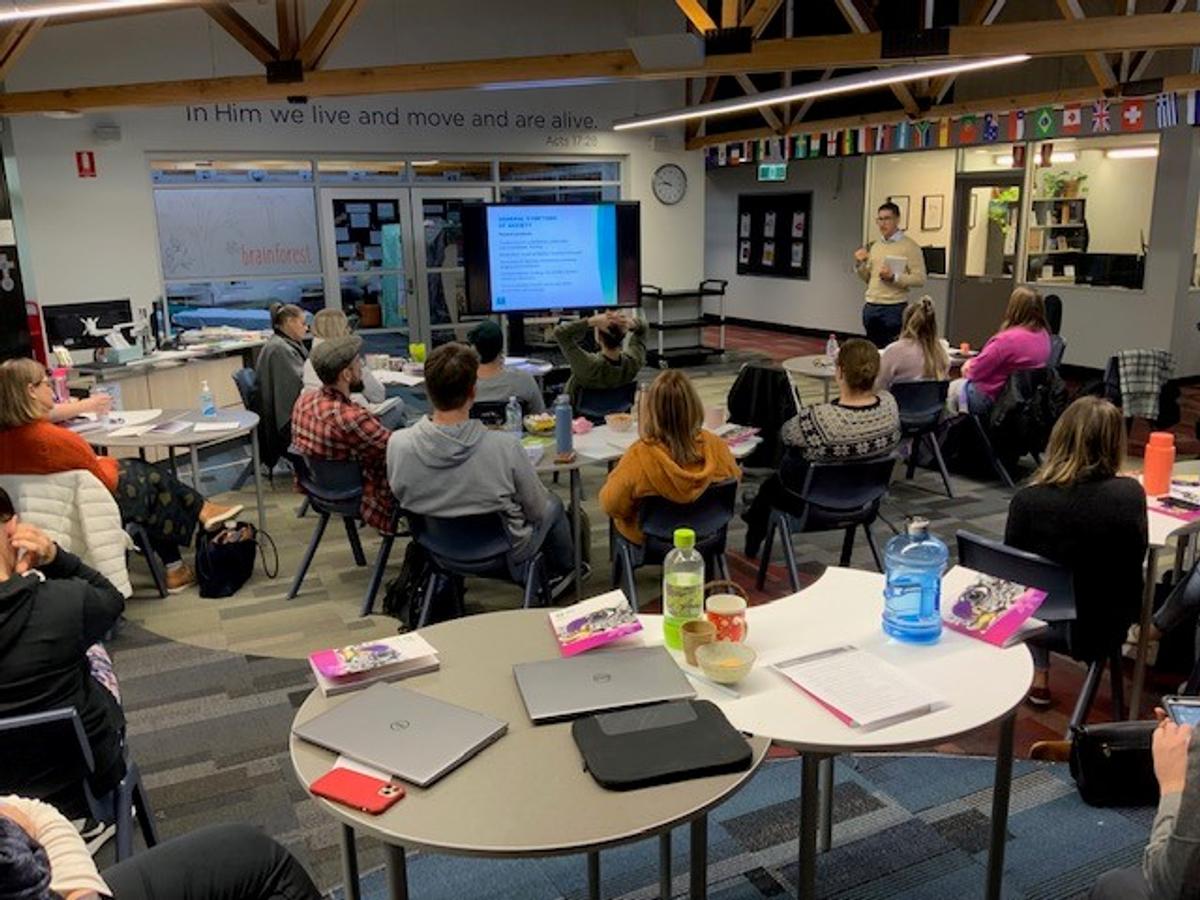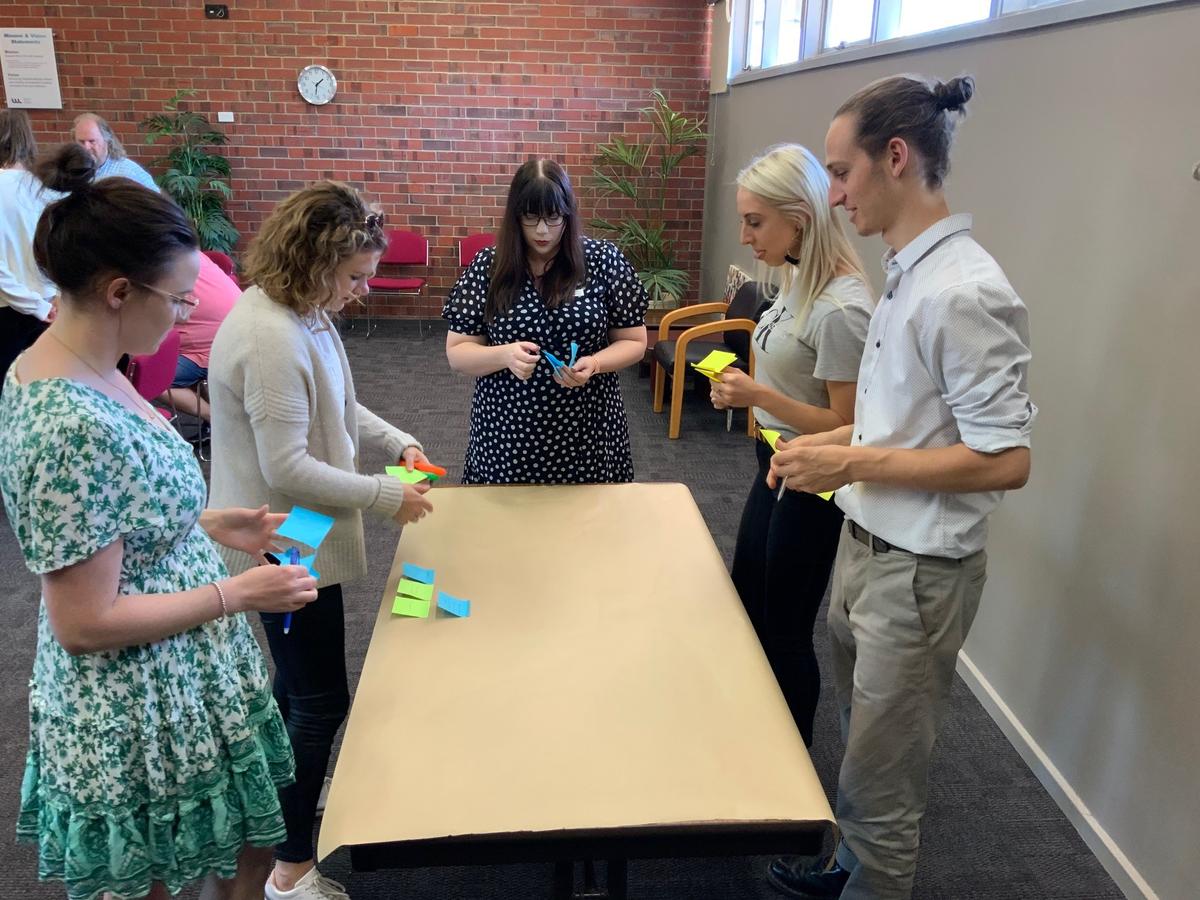staff professional learning
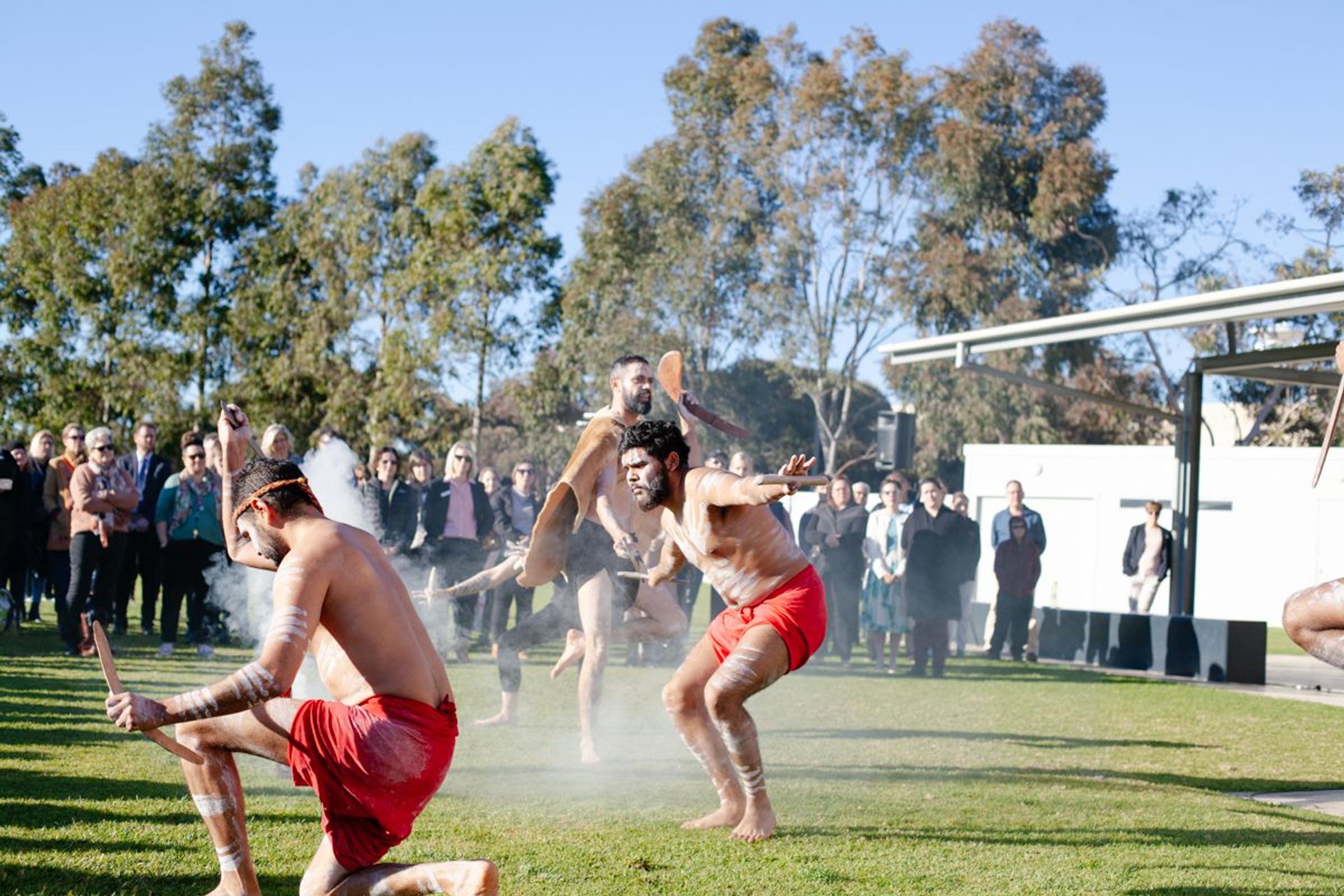
Professional Learning
Dylan William (Institute of Education, University of London) is quoted as saying:
“If we create a culture where every teacher believes they need to improve, not because they are not good enough but because they can be even better, there is no limit to what we can achieve.”
Professional Learning at Good Shepherd Lutheran School is enacting our vision statement “Active and connected, growing for LIFE.” Teachers as learners impact students outcomes as they inquire, grow and immerse themselves in a world of change and opportunity.
The Australian Professional Standards for teachers, developed by the Government organization AITSL, make explicit the elements of high quality teaching. Teachers at Good Shepherd record a personal professional learning log, and are accountable to the professional standards for teaching.
The following learning principles underpin learning for all members of our community:
Professional learning at Good Shepherd can be divided into three key areas of:
- learning that supports the whole school development plan;
- learning that supports team development e.g. Stage and staff teams; and
- negotiated learning which supports the individual’s personal growth according to individual interests, past learning and previous feedback.
Learning principles - Learning teams focused on one learning principle and set a yearlong goal/growth area and met regularly to give feedback and share their learning in this area. This led to highly focused growth across each stage learning team.
The whole staff focus learning areas were:
- Embed the Good Shepherd Lutheran School Learning Principles (LP’s) into your learning through Assessment, Moderation and Feedback in the Good Shepherd context.
- Assessment practices including Moderation and the Learning Progressions in the Australian Curriculum
- Learning and Curriculum – The transdisciplinary planning as a stage team. Led by the Learning Innovation Team through the AISSA Metapraxis Project.
- Good Shepherd as a school which embeds and grows a Culture of Thinking.
- Agile and flexible learning spaces
AISSA Metapraxis project – the Learning Innovation Team, led by Director Learning Innovation embarked on a three year project in partnership between AISSA and the University of East London. 2021 was the third year of the project.
http://www.metapraxisproject.org/
The Learning Innovation Team unpacked and developed a model for mapping the growth of teachers and students using a High Impact Map. This map is particularly innovative as it helps teachers track student growth in the capabilities and dispositions contained in our learning principles. This tool will map collaboration, communication, empathy, critical and creative thinking etc.
Lutheran Education South Australia, Northern Territory, Western Australia (LESNW) - Leaders in Lutheran Learning Communities (LILLC) - The Director Senior Primary, Director Junior Primary, Director Learning Innovation and Director ELC were involved in leadership days with a focus on the LEA Growing Deep Framework. Using the framework and working within the Compassionate Systems Leadership, they are developing strategies for collective leadership.
Lutheran Education South Australia, Northern Territory, Western Australia (LESNW) - Lab 1.5. The 4 Directors (Director JP, Director SP, Director Learning Innovation) began a journey of leadership learning and goal setting, facilitated by LESNW. The learning is based on the LESNW adopted leadership framework approach "Compassionate Systems Leadership", including Theory U and Growing Deep.
Professional learning of staff is coordinated by the Director Learning Innovation. In 2021 staff were involved in the following professional learning activities:
Learning that supports the whole school development plan:
Learning that supports team development e.g. Stage and staff teams:
- Several of our teachers attended ‘Equip’ Professional Learning days to support them in teaching Christian Studies. Teachers who had undertaken this course were certified as Accredited to teach Christian Studies in a Lutheran school.
- Learning in Restorative Practices for new teachers to our school in 2021.
- Various Learning Support workshops for the teaching team throughout the year, led by our Learning Support teachers including ILP's, differentiation.
- Ongoing professional discussions at team and whole teaching staff level on matters of curriculum: unit evaluation, moderation of student work, inquiry, transdisciplinary curriculum, Christian Studies, Mathematics and Cultures of Thinking.
- Moderation and development of quality assessment tasks.
- Professional learning discussions and development of curriculum at a Connected Schools level including ICT, Integrated Curriculum, Music, LOTE, Principal meetings, Directors meetings, Director Learning Innovation meetings.
- Valuing Safe Communities training was undertaken by new staff members.
- GSPV Reconciliation Action Plan (led by RAP team)
- Student Transitions across the school (led by Leadership Team)
- “Incidental counselling skills training” (trauma) PL (led by Mary Raschella from Lutheran Care)
- Australian Curriculum – various training opportunities through the Association of Independent Schools of South Australia (AISSA).
- Cultures of Thinking: Theory; practice; thinking routines; 8 Cultural forces – what is happening now and where to next? Led by the Director Learning Innovation.
- Leadership professional learning for our teachers with Positions of Additional Responsibility (PAR).
- Understanding Autism Spectrum and effective strategies (Autism SA)
- An emphasis on preparing quality learning opportunities for our students to access online learning through the COVID 19 pandemic mandated lockdowns.
- Sustainability at GSPV.
- Snapshot Observation Protocol
- A Snapshot Observation is first and foremost an opportunity to reflect on teaching and learning practice. It is not an assessment, evaluation, or appraisal of a lesson or of the teacher.
- In a snapshot observation, the learning is primarily for the observers and occurs in the follow-up discussion immediately after the snapshot observation.
- From observing others, teachers will find themselves reflecting on their own practice and effectiveness in their own classrooms. The Snapshot Observation process is designed to be completed in a single class period so that scheduling and release time are minimized while learning is maximized.
- Connected schools reconciliation: More than a word Conference and Reconciliation Action Plan (RAP) vision launch.
- 2 days Youth Mental Health First Aid Course. Learning to understand symptoms and signs of the common and disabling mental health problems in young people, where and how to get help when a young person is developing a mental illness, what sort of help has been shown by research to be effective.
- LESNW Early Career Teacher’s Day
Three of our teachers attended sessions that
explored the Vocational Practices in Growing Deep 'Leadership and Formation Framework':
- excellence in learning,
- strengthening Lutheran identity
- community building
- how the Vocational Practices relate to you, your role and classroom practice in working within a Lutheran Learning Community
- what makes Lutheran Education ‘different’
- Inclusion and Equity with Elizabeth Dickinson
- The ways that schools can have a positive impact on the wellbeing and learning outcomes for gender diverse, intersex and sexually diverse children and young people.
- Exploration of the legislation that informs inclusion in schools every day.
- Understanding that we all play a role.
